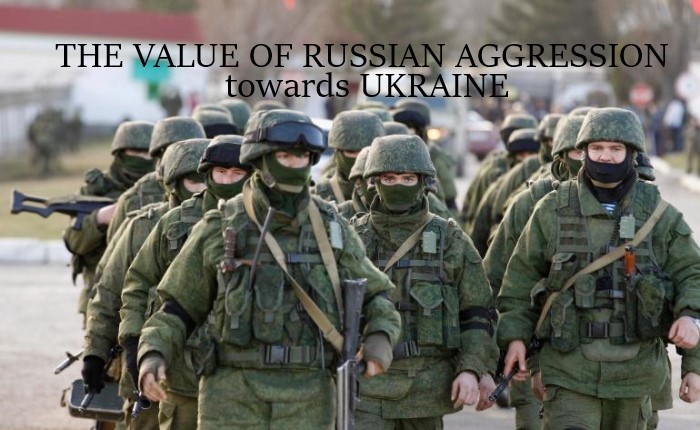THE VALUE OF RUSSIAN AGGRESSION towards UKRAINE

What price does Russia pay for the invasion and full-scale war against Ukraine? While answering this question we usually speak about economy and military losses. At the same time, it is important to remember not only the economic consequences of sanctions or the loss of Russian war equipment and personnel, but also huge political losses that highly increased with the beginning of aggression towards Ukraine.
Failures and efforts
After numerous failures and inability to achieve its operational goals, Russia faced the need to mobilize all available sources to continue the war in Ukraine. This did not go unnoticed among its neighbors.
On the fact, Azerbaijan providing a more active policy in the Nagorno-Karabakh region (probably, prompted by Turkey) and is openly entering into controversy with Russia at the interstate level. Poland is increasingly mentioning the “historical rights” to the Kaliningrad region. Similarly, Japan’s political leadership are speaking about the Kuril Islands.
Perhaps, all these events will not lead to Russia’s territorial losses, but will have real political consequences: (1) a gradual decline in Moscow’s influence in the Caucasus and other regions, which will benefit its competitors, e.g., Turkey; (2) the need of increasement its military presence in the disputed territories (considering significant tensions over the war against Ukraine, where, in fact, all of Russia’s military capabilities are currently involved).
Russia’s efforts to prevent NATO enlargement have backfired
On the background of a large-scale invasion of Russian troops to Ukrainian territory, maintaining “neutrality” began to be perceived as a false foreign policy strategy. This is especially noticeable among Russia’s neighbors, who have been faced with the choice of either joining NATO or falling into Russia’s sphere of influence. Examples are Sweden and Finland – after a long period of neutrality and refusal to participate in military alliances, nevertheless began their movement towards NATO. Both Stockholm and Helsinki expect that Russia does not currently have extra resources (human, financial, technical) to counter their integration process.
Moscow is losing confidence in the loyalty of its allies
Russia’s ally in the CSTO (Collective Security Treaty Organization) Kazakhstan, has refused to provide military support since the first days of the war and has declared its support for Ukraine’s territorial integrity. Sanctioned Iran and Venezuela will obviously not give up compromises with the United States on lifting some of the sanctions, as well as opportunities to increase oil exports (which is seen as an alternative to Russian oil).
China’s true intentions are difficult to identify, but it can be assumed that Russia`s attempts to refocus the foreign economy to Asia will not show immediate results. In addition, it is not clear how much Beijing can save Russia from deaf isolation and what it will ask for in return (perhaps increasing its own influence in Central Asia or something more). So, the capabilities of Moscow’s allies to help it are still in question.
Russian political elite has finally lost its place among European neoconservatives. It is true to say that, the ruling political party “United Russia” and the other followers of neoconservatism (such as the “Fidesz” or “Alternative for Germany” or “National Front”, as well as politicians W. Orban, M. Le Pen, M. Zeman) still have common political ideas about sovereignty and growing Euroscepticism, the preservation of traditional family values, the rejection of progressive liberal slogans of equality and tolerance. However, even neoconservatives condemn Moscow’s aggressive actions and are gradually leaning toward decisions to isolate it. Moscow is losing (and may have already lost) one of its most loyal political groups as well as a significant lever of influence on the EU agenda.
Conclusion
It is difficult to predict how strong the political losses of the Russian Federation will be. At the same time, we can already say that the total negative effect of the war has already exceeded all possible benefits. In general, the Russian authorities have backfired in every direction: from strengthening NATO’s Eastern flank with missile systems in close proximity to its borders, to total economic pressure that is effectively destroying Russia’s economy.

Останні коментарі